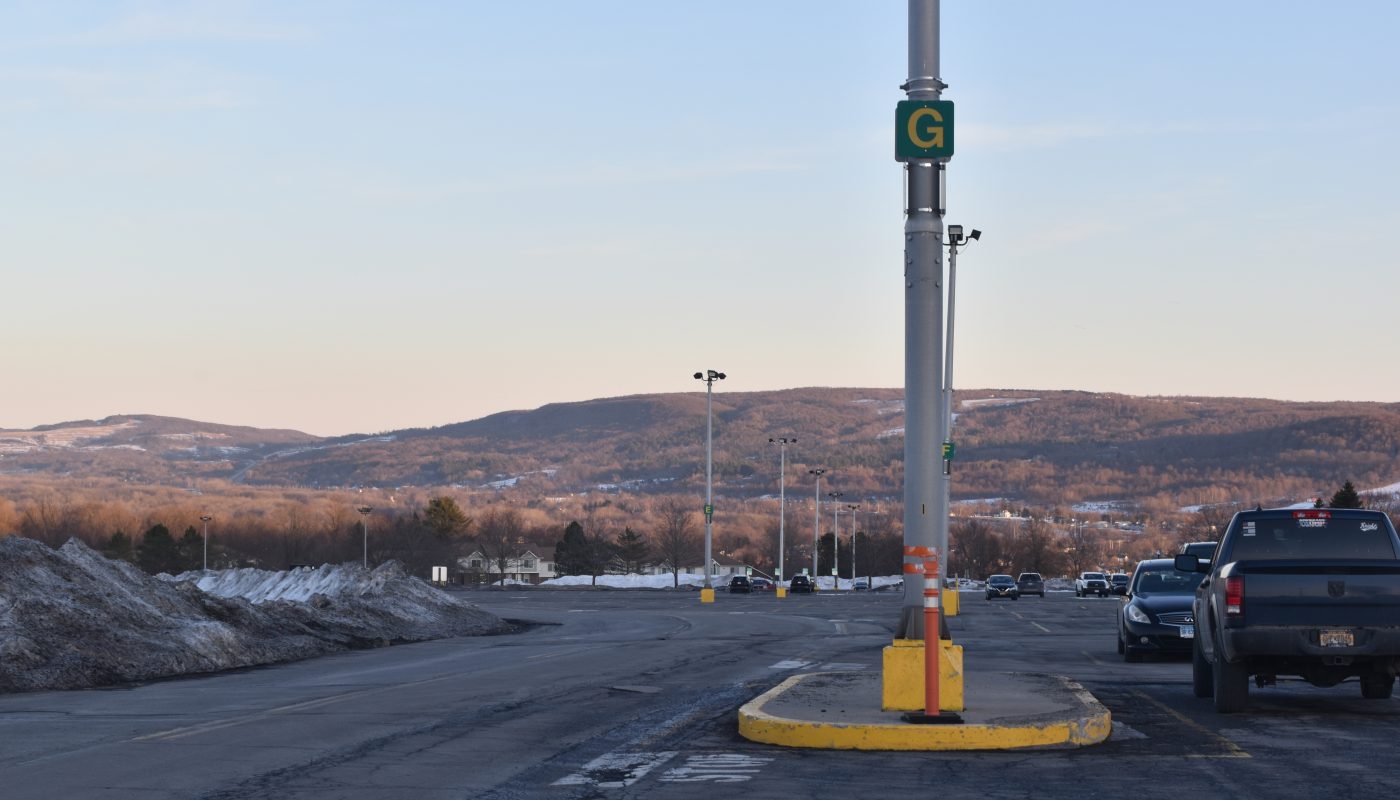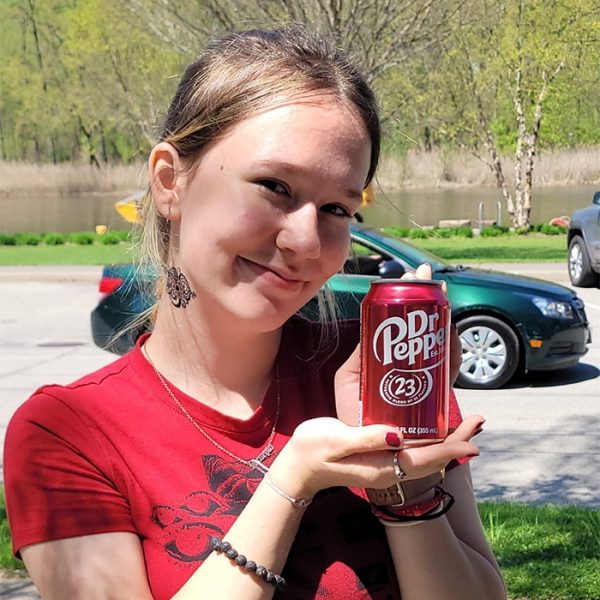Putting together in-person forums where students can come forward with their concerns is just the kind of action needed at a college to address improvement. Dr. Jennifer Adjodha-Evans, Chief Diversity Officer, Faculty Senate President, faculty member, and president of a non-profit organization for 15 years, hosted and promoted an event for people to bring their worries to attention in a safe, unjudgmental environment. But she isn’t done.
Dr. Adjodha-Evans
Dr. Adjodha-Evans takes her job very seriously and certainly lives up to the title. She is one of the many people at Herkimer willing to find out what we can do better and work towards it.
As part of the Academic Senate, Dr. Adjodha-Evans says “What I do is always looking at how we frame academics to better suit the student. We look at programs… how the courses are offered… policies, those kinds of things.” Evans explains how in this group, she works with Student Government and other forces to bring up issues with academics, speak on the subject, and vote on decisions. “For example, we talk about the AI policy… how AI is going to be utilized by students and how do we feel about it as faculty.”
Dr. Adjodha-Evans has only been the Chief Diversity Officer since October, less than a year, and she has already taken significant steps towards improvement. In this position her goal is to look at the diverse population of her students and see if the college is meeting the equitability in their practices, and also to make sure students feel like they belong. “Some of the things that my job description oversees… is looking at the student experience and saying ‘okay, are the clubs that we have inclusive?’” This is how the Culture Club, a club she is co-advisor of with Ms. Jennifer Brown, and very proud of, came into existence.
Something she sees as a large accomplishment is Herkimer’s Culture Club because of the intended effect it has had on engaging students and including them. The clubs name originally began as the Black and Latino Student Union, but this didn’t sit right with Dr. Evans. “I feel like the club by its name, is kind of exclusive… I feel like if you’re not a Black or Latino student, would you really want to be part of this club? All clubs are supposed to be for everyone.” She came forward with the idea of the club gravitating toward culture and that is how it became successful in captivating students and pushing them to do more. “My role is, how do I find things that help Herkimer students to feel that sense of belonging, and Culture Club was part of that,” she says passionately.
Of course, this is only one of Dr. Adjodha-Evans’ accomplishments in expanding diversity and inclusiveness.
Check with the CDO is an open forum that Dr. Evans hosts where students are able to express concerns about things that they would normally go to the dean or an RA about, if they feel like they aren’t being attended to by those groups. She explains how students can voice their concerns, and in her position, she can bring that information to leadership anonymously. She did this last semester, and it was a success. Her goal was to create a safe space where students felt like they could talk about problems they are experiencing, no matter how deep, and feel like they will not be judged and that action would be taken. Dr. Adjodha-Evans plans to do more of these forums. She simply discusses with Vicki Brown, campus activity director, and other staff that she would like to host an event like this and gets it promoted as much as possible to get as much feedback as possible. She even collaborated with the cafeteria for the previous event and provided food and drinks.
Dr. Evans has also developed something called an interfaith space. This is for people who practice a certain religion to have an area where they can carry out their worship services. “I saw that… we had a lot of Muslim students who do Ramadan, I know my students were fasting, and they needed to pray and there was no space for that.” She says, “I wanted… students to know that …that space is for me, I’m free to express my religious beliefs… and not feel weird about it’.”
Another big thing for Dr. Evans is opening students up to the world. “I have always wanted to expand the horizons of students… I realized that some students had never left the area.” Says Evans. Two years ago, she did a trip to the Dominican Republic with four students for one week as an educating experience and they loved it. “Students say to me, ‘I would love the opportunity to go, I don’t know how to do it, I don’t know who to go with.’” She wants to create a study abroad experience for students to learn and see more cultural things, and biodiversity. She is continuously putting these things together. In one month, she has a trip planned to take students to Ecuador. She is even doing another trip after this in January.
Clearly Dr. Adjodha-Evans is a big part of inclusion and welcomeness at Herkimer, but she is not the only person making a difference.
Cynthia Gabriel
Cynthia Gabriel, an English professor, has worked at Herkimer County Community college for 27 years. She’s dedicated herself to helping her students, coworkers, and other faculty just by simply listening, paying attention, and acting on what she’s learned. She starts by speaking about a past issue that a student had brought to the college’s attention in their paper for an Interpersonal Communication class on what could be improved at the college. They believed that it would be useful to have an ATM machine on campus. Gabriel explains how that was successfully addressed, and ATM machines were added to multiple buildings on campus.
Another resolved situation in the past was students’ dissatisfaction with the cafeteria. “I used to be on the SFA student government board. SGA students complained about the quality of food in the cafeteria. They wanted it to be more diverse, and more grab and go, and so the food has been addressed here as well,” says Gabriel.
She goes on to discuss how the college installed a solar light for traffic near the Reservoir Run housing buildings to help visually impaired students travel more safely. In correlation, raised bumps were added to the cement so these students could better feel where they were walking. “We had… students who were not able to find their way across the roadway.”
Gabriel speaks of Nicolas Laino, officer-in-charge of the campus, as she is adamant he has credit for taking into consideration faculty’s complaints of there not being enough access to women’s restrooms. “He immediately sat down with us and converted a men’s room to a women’s room.”
Gabriel has come forward with past issues and taken the steps needed to make improvements, but she still has more ideas for what else we can do. She believes Herkimer College would be more accessible if the elevators were not in the middle of the buildings. “That’s simply based on infrastructure… these buildings were created in the 60’s… that really does need to be addressed.” she says. She also brings to attention the fact that students “do not feel that they have access and opportunity with the hours” for the cafeteria. Like many others, Gabriel agrees that the cafeteria hours need to be more diverse considering the number of students with other obligations, like sports or clubs, who cannot always make it to the dining hall at its’ specific times. It does not work very well around certain students’ schedules, and the goal is to make a basic need such as eating as inclusive as possible. “They used to have a night cafe,” Gabriel explains, “it would serve pizza, subs, and chicken wings; and it was open till, like one A.M.”. This is a simple idea that we could bring back to improve cafeteria hours for students who have trouble working around their schedule if Herkimer started to work toward a budget for the idea. This could also help students who need more work because it provides more job opportunities.
Student seating areas around campus are also a small challenge that was brought to light. “There was not enough student space, and the Zen Den is a positive,” Gabriel says. When traveling around the campus, you can find few seating areas inside and even fewer outside. Something to improve could be adding more areas for students to exist in an environment together. As Gabriel mentioned, the Zen Den is a nice addition to the campus because it is a calm area where students can go to spend time doing things they might at home but in a college setting, and it’s right in the middle of all the activities. However, it is relatively small and only one of the few places like this on campus.
Something very intriguing Gabriel stressed was the idea of putting the community back into community college. “We don’t really build bridges in our community anymore; we used to really be embedded in the community.” She says as she comes forward with great ideas, “For example, like a local cafe, coffee bar, something that will bring the students downtown.” Just a place to go, hang out, listen to live music, dance…” Gabriel wants the College to create more of an outreach in the community how she feels it used to have. “I also suggested that we do activities in Wehrum Stadium when we’re not using it, so for example, get a band… and just have like a music fest.” Gabriel suggests new and fun ideas that the college could implement to create more activity and liveliness while also recognizing that there are limits and we do have doing what they can. Although, we should think bigger.
Making Changes and Solving Problems
It is important to know who you can go to when you need to share concerns in college and who you can look to, to question what we already have and what more we could have. These are the people making changes, and the changes they are making are inspiring.


 by
by 
